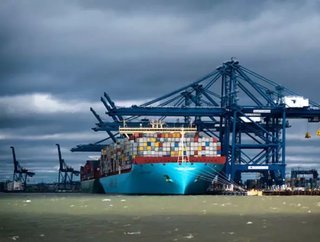Port of Brisbane and PwC Australia reveal blockchain initiative

PwC Australia, the Australian Chamber of Commerce and Industry, and the Port of Brisbane have collaborated to link supply chain information through blockchain technology, which they say will “revolutionise international trade by removing complexity”.
The parties say the ‘Trade Community System’ will address a number of points and recommendations from the recently released Inquiry into National Freight and Supply Chain Priorities Report.
“To drive new efficiency gains, industry leaders need to develop mechanisms which facilitate the integration and interoperability of commercial operators across the supply chain and logistics sector,” Port of Brisbane CEO, Roy Cummins said.
Australia has been experiencing growth in its volume of trade, which has increased pressure on supply chains, ports and border authorities to process, screen and clear goods as efficiently as possible in to the Australian Economy.
There are roughly nine million container movements at major ports annually, which is projected to rise to 15mn by 2025.
SEE ALSO:
“The Trade Community System proof of concept is the first stage in building an innovative end-to-end supply chain that will digitise the flow of trading information, improve connectivity for supply chain participants, reduce friction for business and reduce supply chain costs, providing unprecedented productivity gains for Australia’s international businesses,” PwC Partner, Ben Lannan said.
“The port – whether sea or air – is the first and last point of domestic contact in the international supply chain and is the primary point at which all significant supply chain participants converge. To grow Australia’s trade competitiveness, we need to look beyond our ports.”
Australian Chamber Director of Trade and International Affairs, Bryan Clark, commented: “At present the current inefficiency across Australian supply chains has added to the cost of doing business, creating up to $450 in excess costs per container.
“This doesn’t just represent in excess of $1bn in value lost, but goes to the heart of Australian commodity trade viability when it gets priced out of the competitive global market. It is the right time for industry to initiate a reform and modernisation agenda which will shift the dial for Australia’s international business.”
- Alberto Medina, Founder of Telescope at P&SC LIVE SingaporeDigital Supply Chain
- Why blockchain is vital to managing risk in the supply chainSupply Chain Risk Management
- Blockchain strengthening links in supply chainLogistics
- Ten benefits blockchain brings to supply chainsDigital Supply Chain






